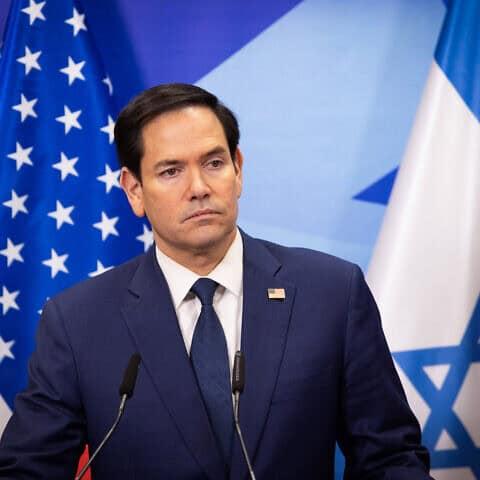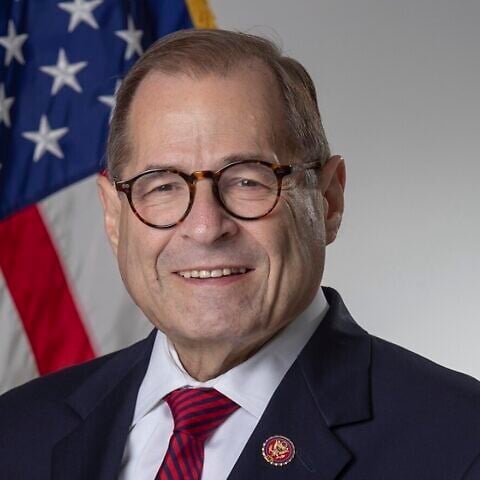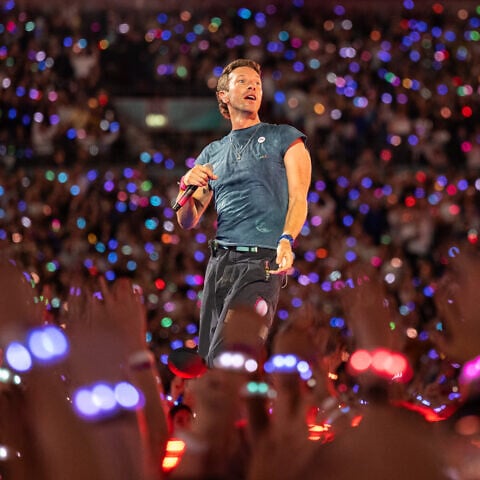Australia-Israel rift splits Jewish community
Antisemitism surge fuels divisions as leaders debate Canberra’s stance on Palestine and Netanyahu’s harsh rebuke.
The diplomatic spat that erupted between Israel and Australia last month has divided Australian Jews, with some criticizing both their country and the Jewish state, and others singling out only one party.
The main disagreement has to do with a social media post by Israeli Prime Minister Benjamin Netanyahu, who on Aug. 19 wrote on X that his Australian counterpart, Anthony Albanese, will be remembered “for what he is: A weak politician who betrayed Israel and abandoned Australia’s Jews.”
The rebuke, unusually harsh for Netanyahu, followed Australia’s announcement that it would recognize a Palestinian state. Netanyahu wrote to Albanese on Aug. 17, saying this plan “emboldens those who menace Australian Jews, and encourages the Jew hatred now stalking your streets”—a reference to the dramatic rise in antisemitic incidents in Australia since Oct. 7, 2023.
Later that month, Canberra denied a visa to Simcha Rothman, a prominent Israeli lawmaker from Netanyahu’s right-wing coalition, who was scheduled to meet Jewish community leaders down under. Israel retaliated by denying some Australian diplomats entry visas, preventing them from reaching the Palestinian Authority.
This was the nadir of a relationship that began deteriorating after Oct. 7, 2023, when Albanese’s Labour-led government became a vocal voice demanding Israel stop its war against Hamas in Gaza.
Last week, Rabbi Nochum Schapiro, the president of the Rabbinical Association of Australasia, the country’s main Orthodox rabbinical group, wrote a letter to Albanese that echoed Netanyahu’s message, but stopped short of wading into his row with Netanyahu. “Recognition of a Palestinian state under present conditions would almost certainly intensify antisemitism and endanger the safety and well-being of Australian Jews,” wrote Schapiro.
Robert Gregory, CEO of the Australian Jewish Association, a center-right national community body that was established in 2017 and has thousands of members, backed Netanyahu’s position. Gregory told JNS that Australian Jews “valued” Netanyahu’s position. “I think it helped the Australian Jewish community feel like we’re not alone and that we do have support,” Gregory said of the statements by Netanyahu, Israeli Diaspora Affairs Minister Amichai Chikli, and other Israeli officials who spoke out about Australia’s antisemitism problem.
The Executive Council of Australian Jewry (ECAJ), an umbrella organization representing some 200 Jewish groups in Australia, clearly sees things differently. In response to Netanyahu’s “weak politician” remark, ECAJ sent Netanyahu a letter protesting his words as “inflammatory and provocative,” adding that they “demonstrated a woeful lack of understanding of social and political conditions in Australia.”
ECAJ also sent a letter to Albanese, saying that his July 30 remarks that Netanyahu was “in denial” about the repercussions of the war in Gaza were “excessive and gratuitously insulting.”
Gregory said he is “somewhat understanding” of ECAJ’s attempt at balance, noting that ECAJ engages with the government regularly to secure communal interests.
“It looks like this Australian government will be in power for quite some time. So the Jewish community is in a very difficult position. It’s a very hostile government, the most hostile government ever in the history of Australia. And sort of managing those different interests is obviously quite difficult,” said Gregory, a 35-year-old resident of Sydney and a father of one.
Last year, far-left Jews established their own group: the Jewish Council of Australia (JCA). It supports Australian recognition of a Palestinian state and calls Israel’s actions in Gaza an “intensifying genocide.” JCA also condemned a gathering of mayors against antisemitism planned for Sept. 3-5 in the Gold Coast near Brisbane by the Combat Antisemitism Movement as a “far-right” event designed to silence “legitimate criticism of Israel by conflating it with antisemitism.”
Australia saw a fourfold increase in documented antisemitic incidents in 2024—the steepest rise among English-speaking countries with available data—according to the “J7 Annual Report on Antisemitism 2025,” published in May.
While the United States reported the highest number of incidents in absolute terms—9,354 in 2024, up from 8,873 the previous year—Australia registered the most dramatic relative increase, with reported antisemitic incidents rising from 495 to 2,062.
The spike in antisemitism was both quantitative and marked by an escalation in severity: Incidents included the arson of a Melbourne synagogue in December, vandalism and attacks on Jewish homes, and the March discovery of a van packed with explosives and a list of Jewish targets in a Sydney suburb.
The Australian Security Intelligence Organisation (ASIO) had determined that Iran was responsible for two arson attacks: one at the Adas Israel synagogue in Melbourne on Dec. 6, 2024, and another on a kosher restaurant, Lewis’ Continental Kitchen, in Sydney on Oct. 20, 2024, Albanese said last week.
But Iranian involvement explains only some of the incidents, said Gregory, who has received several death threats targeted at him specifically since Oct. 7, 2023.
“The mood for the average Australian is also turning against the Jewish community,” he said, noting mass protests, sometimes featuring antisemitic hate speech, outside the Sydney Opera House and beyond. He noted the video of two nurses who were recorded saying in a video chat with an Israeli that they would like to kill Israeli patients or let them die.
The nurses have been fired and are standing trial for incitement, but their sentiment is shared by many others across Australian society, Gregory said.
The spread of antisemitic hatred has been sudden and particularly jarring in Australia, Gregory added, explaining it had been widely seen as a safe haven that was unaffected by the rise of so-called New Antisemitism—hatred of Jews under the mantle of antipathy toward Israel—that has spread through much of Europe.
“It’s been a complete turnaround. Jews have been in Australia for a very long time, and there was never a serious issue of antisemitism. Everything changed on Oct. 7,” 2023, said Gregory.





